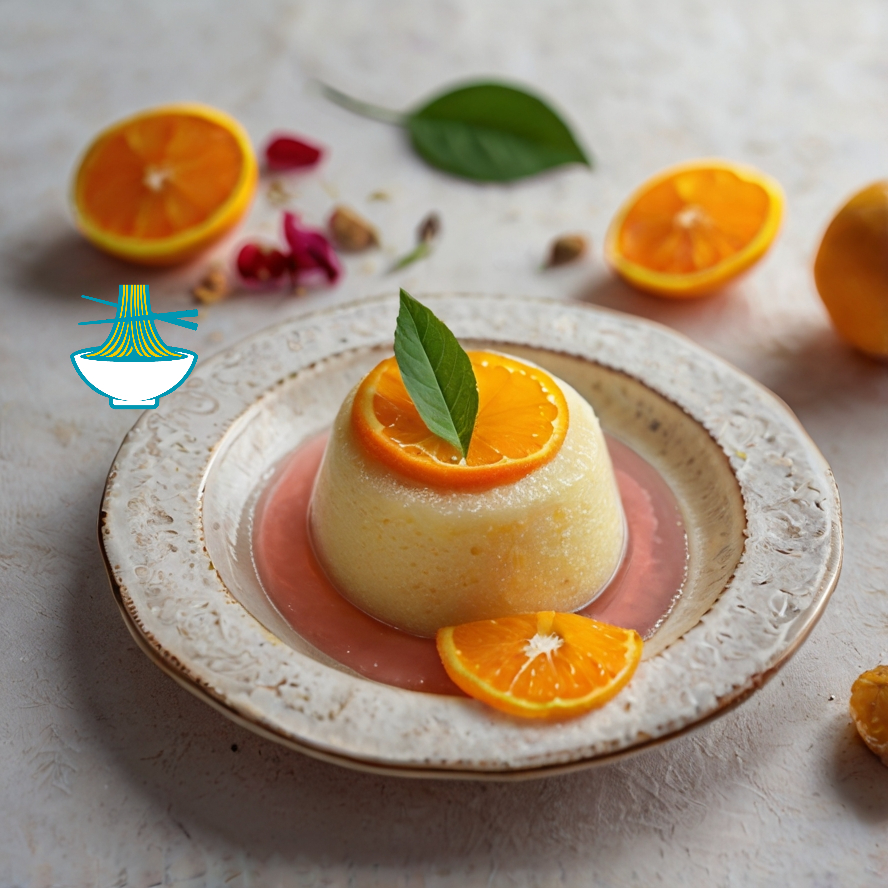Sahnoun: A traditional North African dessert made with semolina, sugar, milk, and fragrant blossom water. Originating from the Maghreb region, it's a cherished sweet dish with roots in Berber cuisine, showcasing the region's culinary heritage.
Ingredients:
- 1 cup semolina
- 1/2 cup sugar
- 2 cups milk
- 1-2 tablespoons rose or orange blossom water
Method:
- In a saucepan, heat milk over medium heat until warm.
- Slowly add semolina while stirring continuously to avoid lumps.
- Stir in sugar and continue cooking until the mixture thickens.
- Remove from heat and add rose or orange blossom water, stirring well.
- Pour the mixture into individual serving bowls or a shallow dish.
- Allow it to cool and set before serving. Optionally, garnish with nuts or dried fruits.
- Serve and enjoy this delightful Sahnoun dessert!
Nutrition Value:
Semolina (1 cup):
- Calories: Approximately 601 kcal
- Carbohydrates: Approximately 122 grams
- Protein: Approximately 21 grams
- Fat: Approximately 1.6 grams
- Sodium: Negligible
- Cholesterol: Negligible
benefits: Semolina is a good source of energy due to its high carbohydrate content. It also provides a moderate amount of protein and some essential nutrients like iron and B vitamins.
Sugar (1/2 cup):
- Calories: Approximately 387 kcal
- Carbohydrates: Approximately 100 grams
- Protein: Negligible
- Fat: Negligible
- Sodium: Negligible
- Cholesterol: Negligible
benefits: Sugar provides quick energy due to its high carbohydrate content, but it lacks significant nutritional value. However, it adds sweetness to the dish.
Milk (2 cups):
- Calories: Approximately 300 kcal
- Carbohydrates: Approximately 24 grams
- Protein: Approximately 16 grams
- Fat: Approximately 16 grams
- Sodium: Approximately 200 mg
- Cholesterol: Approximately 50 mg
- Vitamins and minerals: Milk is an excellent source of calcium, vitamin D, vitamin B12, and riboflavin.
benefits: Milk provides essential nutrients for bone health, such as calcium and vitamin D. It also offers protein for muscle growth and repair.
Rose or Orange Blossom Water (1-2 tablespoons):
- Calories: Approximately 0-5 kcal (depending on quantity)
- Carbohydrates: Negligible
- Protein: Negligible
- Fat: Negligible
- Sodium: Negligible
- Cholesterol: Negligible
benefits: While rose or orange blossom water doesn't contribute significant macronutrients or calories, it adds flavor and aroma to the dish, enhancing its sensory appeal. Additionally, it may have some antioxidant properties.


Comments